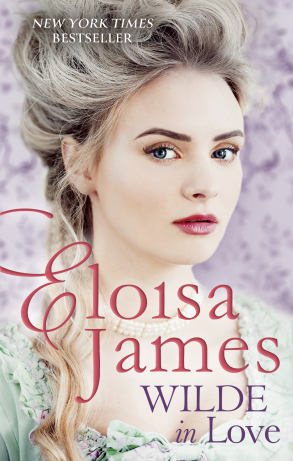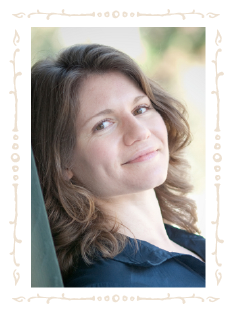 When the mornings grew grey and miserable and foggy, I made a wish to the Book Gods for a beautiful story to land on my doorstep. And the Book Gods (Piatkus) answered! Wilde in Love by Eloisa James slipped from its envelope and onto the kitchen counter.
When the mornings grew grey and miserable and foggy, I made a wish to the Book Gods for a beautiful story to land on my doorstep. And the Book Gods (Piatkus) answered! Wilde in Love by Eloisa James slipped from its envelope and onto the kitchen counter.
Lord Alaric Wilde – Wilde by name and wilder by nature – has returned from years abroad, unaware that his adventures have earned him numerous fans. As the ship he’s taken passage on docks in London, he’s met by a screaming mob – all female – who are desperate for a piece of him. Although they’ll settle for the flowers in his garden and the bricks from his house. To Alaric’s horror, almost everyone is obsessed with him, aside from Miss Willa Ffynche.
Despite the fact that Alaric claims not to be a pirate, he does have a swashbuckling swagger and a quiet confidence that is masterfully written. As for our heroine, Willa, she is a clever woman who always has the upper hand and is even analytical about marriage proposals. She would never fall for a man whose every move is dissected by the public. She finds it rather vulgar. Adoring women stalk Alaric, there’s even a farcical play about his exploits and Willa knows trouble when she sees it. But why must trouble be so alluring?
Eloisa James has written a story that captures all the best elements of a regency romance; flirty, feisty and fun, without taking itself too seriously. And it still packs an emotional punch. What makes Wilde in Love the ultimate escape is the back-and-forth between the characters. Their sharp minds are on display, as they duel with words and – very occasionally – wound one other. Or send thoughts down darker avenues:
“Would it surprise you to know that I’ve never been aboard a pirate ship?”
“Indeed not,” she said, flustered. “I know that pirates board English vessels, rather than the other way around.”
The smile in his eyes deepened. “I confess to piratical tendencies.”
Was he implying that he viewed her as an English vessel eager to be boarded? Boarded?
From cannibals to suggestive comments about exploring “uncharted territory”, Wilde in Love is devilishly funny and a little on the saucy side, while remaining tongue-in-cheek.
My only comment, to spare British readers any confusion: when roly-polys are mentioned, the characters are not talking about a dessert. In the US, roly-polys are the name for woodlice. I did wonder why someone had left pudding in the garden…
Advertisements Share this:






